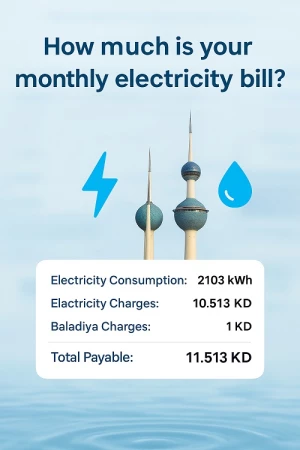Latest News
- Expats Alert: PACI Just Changed The Rules For Updating Your Addr...
- Best Pizza In Kuwait: Top Brands And What To Order
- Best Budget-Friendly Chalets & Villas In Kuwait For Weekend Geta...
- Why Electricity Bills Are Rising In Kuwait & Smart Ways Expats C...
- App Store Optimization: Why It’s Becoming A Core Part Of SEO Str...
- Best Shower Filters In Kuwait For Hair Fall And Skin Protection
- Exness Sets A New Standard Of Consistency In The Trading Industr...
- Instant Withdrawals In Trading – A Game Changer For Traders In K...
- Best Abaya Shop In Kuwait: Editorial Review Of Abay.com
- IPhone 17 In Kuwait: Prices, Colors, Specs & Where To Buy
- Best Drinking Water Filter For Home In Kuwait
- Avoid Common Qatar E-visa Application Mistakes. Learn The Top 5...
Kuwait Moves To Protect Expat Workers' Rights With New Enforcement
Under the directives of First Deputy Prime Minister and Minister of Interior Sheikh Fahad Yousef Saud Al-Sabah, the Public Authority for Manpower (PAM) has taken decisive action to uphold the Cabinet’s mandate on timely salary payments. Several companies and private businesses have had their files suspended due to failure in regularly depositing workers’ salaries into local bank accounts.
Protecting Workers’ Rights Through Enforcement
The authority clarified that while these suspensions serve as a stern warning, they do not affect the workers' ability to renew their files or transfer to another compliant employer. This move aligns with Article 57 of Law No. 6/2010, which mandates that companies employing five or more workers must transfer wages to local financial institutions and submit bank statements to PAM.
The first wave of file suspensions focused on businesses that failed to comply with salary deposit regulations through PAM’s automated monitoring systems. This step is both preventive and corrective, prompting employers to meet their legal obligations without delay.
Emphasis on Human Rights and Legal Action
The PAM emphasized that the reputation of Kuwait in the global human rights space, especially concerning expatriate labor rights, must be protected. As such, companies that continue to neglect wage obligations will face immediate legal repercussions.
A senior PAM source reiterated that this enforcement is not just administrative but stems from a firm commitment to safeguard workers. The minister has issued clear instructions to take strict measures against those compromising wage rights.
How Suspensions Affect Employers and Workers
Suspended files will not hinder existing workers from renewing their residency or transferring sponsorship. This ensures that workers are not penalized for the employer’s non-compliance and that they remain within the legal framework of Kuwait’s residency laws.
However, affected companies will face limitations, including:
- Prohibition on adding new workers
- Inability to process manpower needs assessments
Employers are required to resolve violations by:
- Ensuring full salary transfers
- Submitting justifications for any delays through PAM’s “Ashal” system
Minister's Warning and Future Action
In October 2024, Minister Sheikh Fahad Al-Yousef had already warned all employers of strict action against salary violations. This recent implementation demonstrates that PAM is moving from warnings to enforcement to ensure private sector compliance.
Conclusion
By suspending non-compliant companies, PAM underscores Kuwait's firm stance on labor law enforcement and protecting the rights of workers, especially expatriates. These efforts are part of a broader commitment to improving workplace fairness, legal compliance, and human dignity.
Once compliance is achieved, the suspension will be automatically lifted, restoring the company’s legal status without requiring further intervention.





